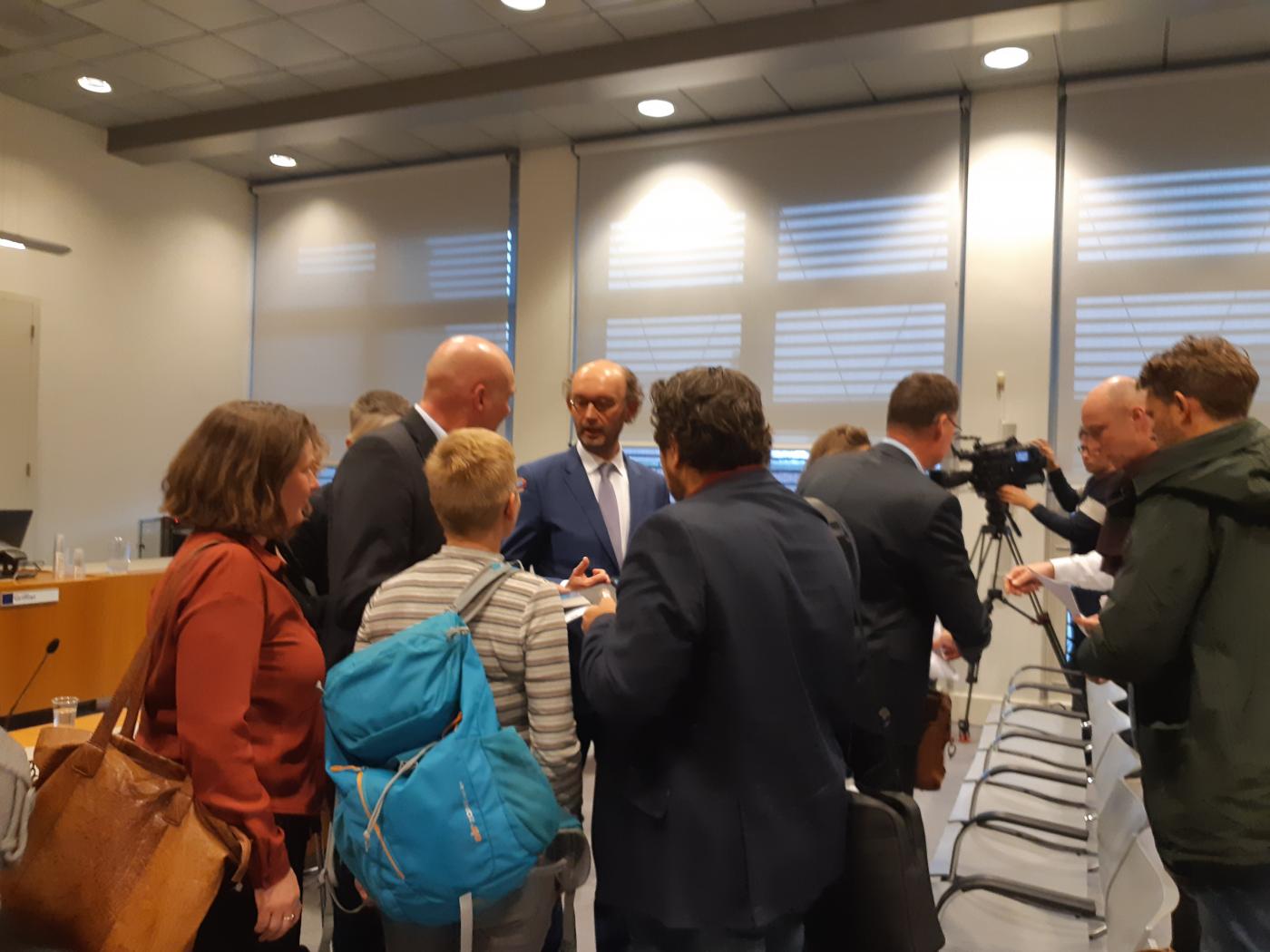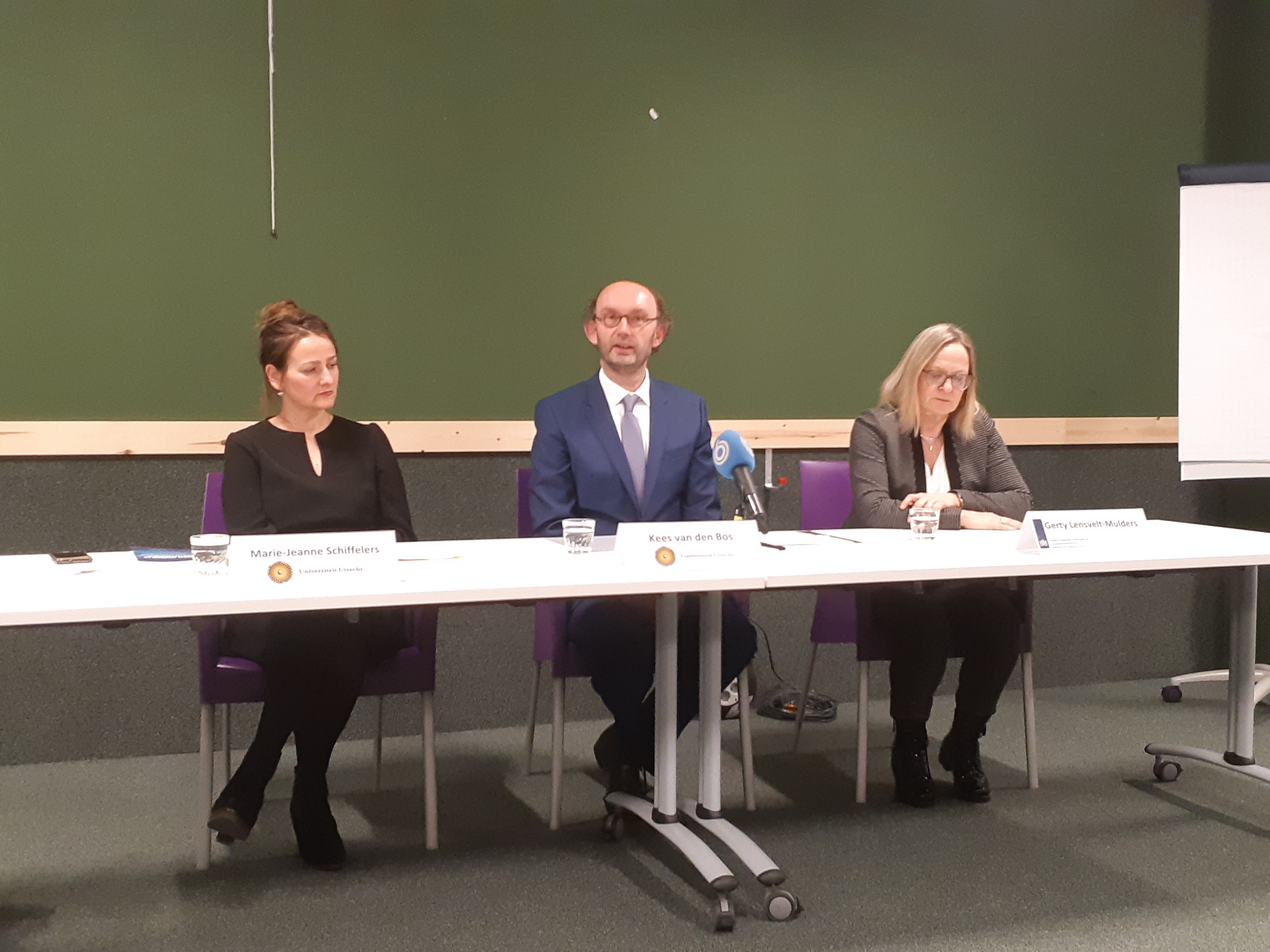Judge protects scientific freedom by verdict on Jehovah's report

As far as we know, the fact that Utrecht University had to defend the outcome of a scientific investigation in a courtroom beforehand has not occurred before. The Jehovah's Witnesses came in with force, as Professor of Psychology and Law Kees van den Bos put it during a press conference. They asked the court to prevent publication of the report on sexual abuse within the community. According to the Jehovah's Witnesses, the investigation was factually incorrect and extremely defamatory for the denomination. They called the report an insult to the faith. During interim injunction proceedings behind closed doors, they had taken ample time on Wednesday to explain their objections.
On the fourth floor of the courthouse in Utrecht, the judge made his verdict on Thursday under the watchful eye of an army of journalists. Initially, the researchers were tense about the outcome. How could a judge assess whether the scientists had done their job well in one day?
In the verdict, the judge indicated that freedom of expression was of paramount importance, for scientists as well. He had to weigh up the possible disproportionate damage that the publication of the findings could inflict on the Jehovah's Witnesses and the social importance of publishing the results. The judge indicated that he wished to be cautious with prior assessment. He called this an exceptional situation. Ultimately, the social interest for the judge turned out to be more important. “This is not just a random publication. This report was commissioned by the parliament."
No truth-finding
The judge did not consider it to be proven that this report would be bad science, as the Jehovah's Witnesses claimed. “The report makes it clear that it's not about finding the truth, but about investigating how the church deals with reports of sexual abuse. The scientists themselves indicate in the report that they have been unable to identify certain issues and argue for follow-up research.”
The judge went through all the criticisms of the Jehovah's Witnesses and constantly rejected them based on texts from the report. The Jehovah's Witnesses accused the Utrecht researchers, among other things, of having worked with anonymous online questionnaires that allowed people to complete the questionnaire several times. The judge agreed, but indicated that the scientists had properly substantiated their choice and had sufficiently indicated that any overlap did not detract from the quality of the results of the research. People who report abuse are also consistently referred to as "alleged victims" in the report.
Dangerous precedent
The scientists said afterwards during a press conference that they had had a hectic time. "A legal ban does not fit into the scientific world. A ban would be a dangerous precedent," said Marie-Jeanne Schiffelers, who works as an advisor in the Department of Public Administration and Organisational Science. "Otherwise the idea might arise that science is just an opinion."
This was confirmed by Gerty Lensvelt-Mulders, director of the Wetenschappelijk Onderzoek en Documentatie Centrum (Research and Documentation Centre) on whose behalf the research was conducted. “As WODC, we often have to deal with sensitive research. But we have never experienced anything like this. This investigation was supervised by a supervisory committee and I am pleased that the judge has shown that there were sufficient checks and balances in the process.”

Recommendations
In the study, which was made public (in Dutch) on Thursday afternoon, 751 participants shared their experiences. In addition, ten in-depth interviews were conducted. Discussions were also held with board members of the Jehovah's Witnesses and with elders. The aim was to gain insight into how the church community deals with reports and to investigate to what extent the closedness of the community plays a role. International literature was examined as well.
The research shows that respondents are very dissatisfied with the way the church has dealt with their reports. The same people were more satisfied with the way they were treated by the police. A number of recommendations are made in the report, including the setting up of an internal reporting point, making a report to the police mandatory and giving courses to elders so that they can deal with the reports better.
Research leader Kees van den Bos says that he is satisfied with the way in which the rule of law has done its work. “The verdict of the judge is a plea for the freedom of science. As a researcher you must be able to do your work in complete freedom and then be judged by the result. I am pleased that the judge has indicated that this is a good scientific work. This report was about how the denomination dealt with sexual abuse, not about the extent. In that sense it was not representative. We also indicated exactly where the points of interest are and argue for follow-up research.”